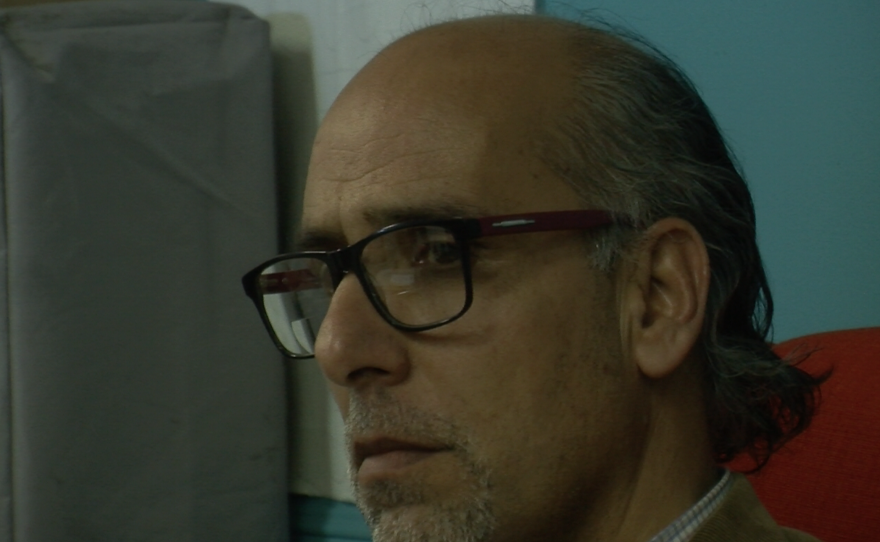Refugees and advocacy groups in San Diego are anxiously awaiting the final version of a draft executive order that, in its current form, would temporarily suspend the resettlement program, drastically cut the annual number of arrivals to the U.S. and indefinitely ban refugees from Syria.
Statement from ACLU
"The ACLU of California has been fighting, and will continue to fight, these measures to ensure that people are not detained and deported without due process, that Muslim immigrants are provided equal opportunity to immigrate to this country, and that state and local resources are not used to further these draconian immigration practices."
Various news outlets published the leaked draft online Wednesday.
President Donald Trump was expected to sign the document on the same day he authorized executive orders to build a border wall and cut funding to "sanctuary cities," but he did not end up doing so. The proposed measures are necessary "to determine what additional procedures can be taken to ensure that those approved for refugee admission do not pose a threat to the security and welfare of the United States," the draft document states.
At a Thursday morning rally hosted by the Immigrant Rights Consortium and Alliance San Diego, advocates and residents spoke out against the measures. David Murphy, executive director for the International Rescue Committee in San Diego, said he feels there are many misconceptions about refugees.
“They are people just like you and me. They have families. They have children. They are looking for a better opportunity in front of them. They have escaped the worst things that human beings have,” Murphy said to the crowd at the County Administration Center.
Some speakers at the news conference threatened legal action in the event order was authorized.
RELATED: Trump Seeks 20 Percent Tax On Mexican Imports, Says Spokesman
Ammar Kawkab, a Syrian refugee of Kurdish origin, said he thinks the proposal comes because people don’t know enough about what it’s like to live in the war-torn country. Kawkab said he arrived in San Diego last June because he was a vocal opponent of the Bashar al-Assad regime.
"I want you to understand that the Syrian people are going through a very extremely harmful tragedy and the people of Syria are waiting for the world to wake up and to take action to save them from this tragedy," Kawkab said, speaking through translator Taha Hassane, an imam and director at the Islamic Center of San Diego.

Kawkab said he would like to share his experiences of living in a war-torn country with politicians, including those in Congress and even the president himself.
Before he and his family arrived to the U.S. and resettled in San Diego's City Heights neighborhood, Kawkab said he was detained by government forces for a month in Syria and endured horrific conditions.
"Torture is a soft term to use describing my experience inside the jail in Syria," Kawkab said. "The treatment that we have received in the jail makes you wish that you are an animal living in Europe or in the West. You will have as an animal more rights than human beings in the jails of the Syrian regime."
Kawkab's parents and two of his siblings are still in Syria. His three other siblings and their families are in Lebanon.
The leaked version of the proposed order would stall the refugee program for 120 days while officials review the vetting process, said Ginger Jacobs, an immigration attorney and chair of the San Diego Immigrant Rights Consortium.
During that time, Jacobs said, any refugees previously approved for resettlement would not be allowed to enter the U.S.
Statement from the Karen Organization of San Diego
"If this executive action is taken place, our refugee community members who are already here in San Diego and contributing to the community cannot get united with their family members after waiting for a long time. Our refugee friends will feel terrified and worried about their future and their children's future without sense of welcoming and safety staying in the U.S."
"According to the order, it says that they will only be admitted after the completion of whatever revised procedures will be announced. So even if somebody has gone through parts of the application and adjudication process, it looks like they will not be able to enter until after the new procedures are in place," she said.
She said the preliminary document listed one exception: persons who are being persecuted because they are members of religious minority groups in their country.
Refugees from Syria would be banned indefinitely, she added.
"They’re basically banning refugees from Syria altogether until such time that the president tells us that it will resume," Jacobs said.
The draft order would also reduce the number of refugees allowed in the U.S. this federal fiscal year from 110,000, which was set by former President Barack Obama, to 50,000.
San Diego County resettled more than 4,000 refugees during the last federal fiscal year, which stretched from October 2015 to September 2016. Of those, 788 were from Syria. The year before, that number was 55.
It is unclear if changes will be made to the proposal, which would also restrict the visa-issuance process, before Trump signs it.







